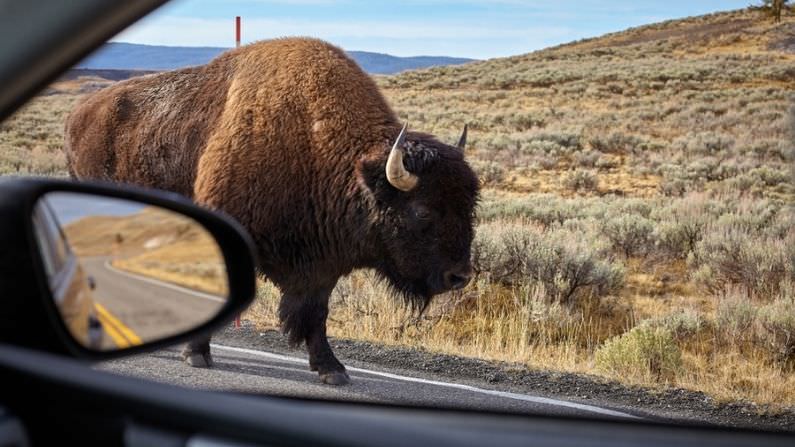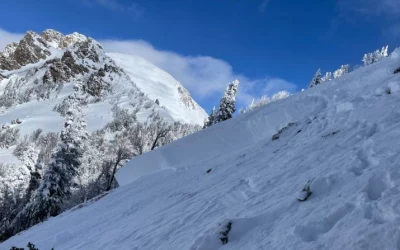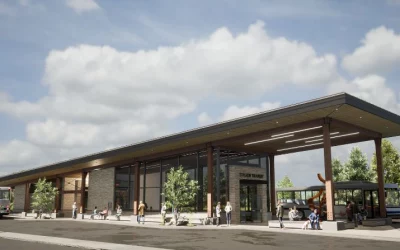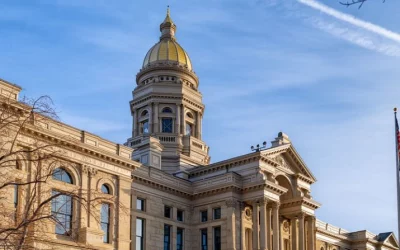Tourist gored by Yellowstone bison
A woman who approached a bison in Yellowstone National Park Monday was gored and sent to the hospital. The 25-year-old was within 10 feet of the animal at Black Sand Basin, according to the park, and she was flung 10 feet into the air, sustaining a puncture wound and other injuries. This is the first incident of a bison goring this season, and park officials are reminding folks that the ungulate is very dangerous when approached and that it can run three times faster than humans.
The woman was immediately transferred following the incident to the Eastern Idaho Regional Medical Center, where she survived. Some early national media coverage incorrectly reported that she had been killed.
Jackson Hole locals get real about tourism
The Jackson Hole Travel and Tourism Board is continuing to gather feedback from both Teton County, Wyoming, and Idaho residents as work progresses on the region’s new sustainable destination management plan. Anecdotal evidence of locals feeling like the area has gotten overcrowded and over-visited has been persistent for several years. However, a new survey of 4,700 local residents sheds new light on the sentiment.
56% of respondents said they feel like the drawbacks of Jackson’s tourism industry outweigh the benefits, compared to just 26% feeling the opposite and 18% remaining neutral. Industry expert Selani Matus from The George Washington University, who helped orchestrate the survey, said that low satisfaction rate with visitors is more common if you’re an older, longtime local.
“This is a general sort of tendency that we observed: The more years that residents have been here, the less sort of positive their outlook was about tourism in terms of, you know, the benefits being had,” Matus said.
Matus also said 44% of residents don’t see tourism as something that contributes to their personal wellbeing. However, a counterpoint to that is that 86% of people do see it as important to the region as the area’s largest economic sector.
Public comments discussing these results are still being taken through June 15. The next step of the process will provide recommended actions to elected officials for them take to try and better manage Jackson Hole tourism. More information is available on the board’s Facebook page.
Town Council mulls short-term rental changes as lobbyists assemble
The Jackson Town Council is scheduled to consider changing the rules for short-term rentals outside of the lodging overlays in June. The change would extend the current 30-day minimum in residential neighborhoods to 90 days, meaning that homeowners in those areas could only rent four times a year instead of 12.
Advocates for affordable housing like coordinator of the group Shelter JH Clare Stumpf argue the move will help unlock existing homes for local workers and that it’s a step in the right direction toward easing Jackson’s housing crisis. But there are also worries about potential backlash.
“When I’ve been having conversations about it recently, there’s concerns that if this—if the minimum rental length is extended—even with a local option to provide some exemptions, that folks could go down to Cheyenne and overrule that,” Stumpf said.
As it turns out, that’s exactly what at least one member of the town council is expecting. Jackson Vice Mayor Arne Jorgensen responded to Stumpf’s comments during an informal Chat with Town Councilmembers event last week.
“So, it’s a really fascinating question and it’s something that—I don’t want to paralyze ourselves to not take action because we’re afraid of what Cheyenne does, right? It’s important for us to do what we feel like we need to do,” Jorgensen said. “[But] we need to do it being aware of what we might be generating.”
In this case, Jorgensen said he’s heard that some local homeowners are already organizing to oppose the rule change. Opponents say they’re following the current rules and shouldn’t be punished for seeking extra revenue to help pay their mortgages and escalating property taxes.
“They have already hired their lobbyist. It’s not that they’re going to or they might–they have already hired their lobbyist to do this, is what we’ve heard,” Jorgensen said.
That could result in Teton County’s entire local authority to regulate short-term rentals, as well as other tools used for affordable housing development being threatened, Jorgensen said. So, the county is hiring its own lobbyist to work on housing and other critical issues during the next legislative session in Cheyenne. The next local conversation about short-term rental changes is scheduled for a town council workshop at 1:30 p.m. on June 21.
Some BLM employees unionize
Some employees at the Bureau of Land Management voted to join a federal union last week, according to HuffPost. Roughly 200 workers based both in Washington, D.C., and across the country will now be a part of the National Treasury Employees Union after a 116 to 20 decision.
The BLM manages about 10% of the U.S. landmass, with the majority of that located in the West. The agency currently faces massive staffing shortages and, public lands advocates argue, chronic underfunding.
Federal government approves pipeline for renewables in Wyoming
U.S. land managers have given a utility company final permissions to build a massive energy transmission line from southeastern Wyoming to Utah, according to the nonprofit publication WyoFile. The 416-mile line will better connect renewable energy farms in the Cowboy State with the rest of the West and is a critical piece of infrastructure as developers look to double Wyoming’s wind capacity.
The decision reflects the Biden administration’s efforts to accelerate the transition from fossil fuels to green energy in rural America. Energy Secretary Jennifer Granholm discussed why that’s such a priority during a trip to Arizona last week.
“You want these young people not to have to go to these big cities. You were born here. You were raised here, and you want to make sure that you have community and opportunity,” Granholm said. “The amount of space that you have and the fact that you’re all partnering together, there seems to be a collective sense of shared destiny. It’s just such a huge opportunity.”
Developers are poised to make wind the top source of electricity generation in Wyoming with this new pipeline, eventually replacing coal as power plants and mines continue to be decommissioned. Construction of the new pipelines could begin as soon as next year.





